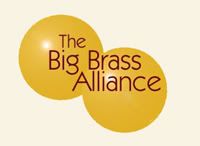Keeping a Democratic Web
From the New York Times:
"One of the Internet’s great strengths is that a single blogger or a small political group can inexpensively create a Web page that is just as accessible to the world as Microsoft’s home page. But this democratic Internet would be in danger if the companies that deliver Internet service changed the rules so that Web sites that pay them money would be easily accessible, while little-guy sites would be harder to access, and slower to navigate. Providers could also block access to sites they do not like."
--
Congress is pushing a law that would abandon the Internet's First Amendment -- a principle called Network Neutrality that prevents companies like AT&T, Verizon and Comcast from deciding which Web sites work best for you -- based on what site pays them the most. Your local library shouldn’t have to outbid Barnes & Noble for the right to have its Web site open quickly on your computer.
Net Neutrality allows everyone to compete on a level playing field and is the reason that the Internet is a force for economic innovation, civic participation and free speech. If the public doesn't speak up now, Congress will cave to a multi-million dollar lobbying campaign by telephone and cable companies that want to decide what you do, where you go, and what you watch online.
This isn’t just speculation -- we've already seen what happens elsewhere when the Internet's gatekeepers get too much control. Last year, Telus -- Canada's version of AT&T -- blocked their Internet customers from visiting a Web site sympathetic to workers with whom the company was having a labor dispute. And Madison River, a North Carolina ISP, blocked its customers from using any competing Internet phone service.
-Save the Internet Coalition














0 Comments:
Post a Comment
<< Home